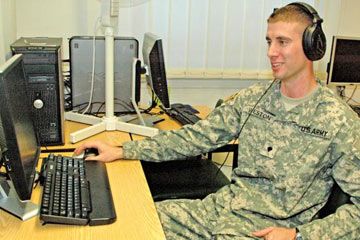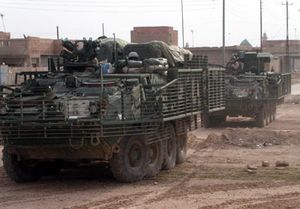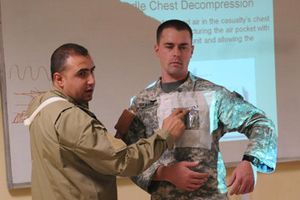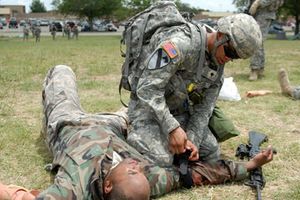Quick. An enemy target is firing on you from across a shallow river. There's a small footbridge that could be traversed to get to the combatant, but what if it's lined with explosives? Should you blow it up yourself to prevent the enemy from crossing? Should you quickly create your own safe crossing? And how the heck do you do either of those?
Welcome to the world of combat engineers. Not only are these military enlistees responsible for, say, placing the explosives to inhibit an enemy target, they're also in charge of determining -- or even building -- the best route to get to that target. From bridges to bombs, these soldiers are responsible for a truckload of mechanical and engineering duties.
Advertisement
In civilian life, the term "engineer" might conjure up some sort of math-oriented, pencil-pushing type who frets over numbers and angles for a living. But in the Army (and other branches of the military, as we'll touch on), not all engineers are sitting at desks. In the next few pages, we'll learn about some who are as much action as they are equation. From constructing bridges to blowing them up, combat engineers must have a head for spatial thinking and a heart that isn't faint.
Although we're mostly talking about combat engineers in the United States Army here, their job descriptions in other nation's militaries (including Canada and the United Kingdom) aren't too different; however, combat engineers outside the U.S. do often deal with water supply filtration and distribution [sources: Canadian Forces, British Army]. In addition, the United States Marine Corps also employs combat engineers, who have many of the same duties as those in the Army [source: Marines].
While this combat position is technically closed to women until the U.S. Department of Defense figures out how to open up all military roles to females, women have actually been able to train as combat engineers for years at Fort Leonard Wood in Missouri. The Sapper Leader Course (an elite training program for engineers on the front lines) began accepting women in 1999. For those already in noncombat engineering roles, Army leadership decided every qualified man or woman deserved a shot at the training. By 2013, 55 women had graduated from the course [source: Michaels].
Advertisement















